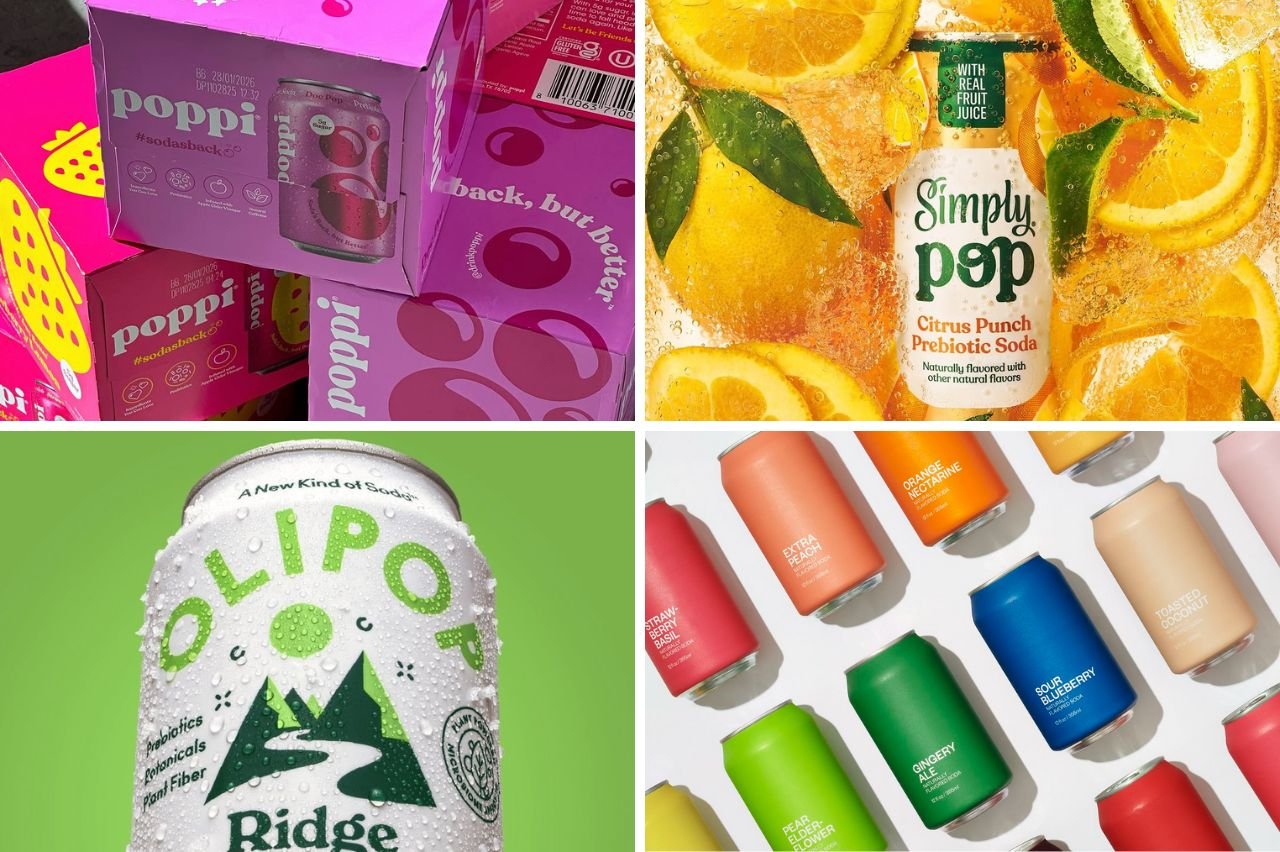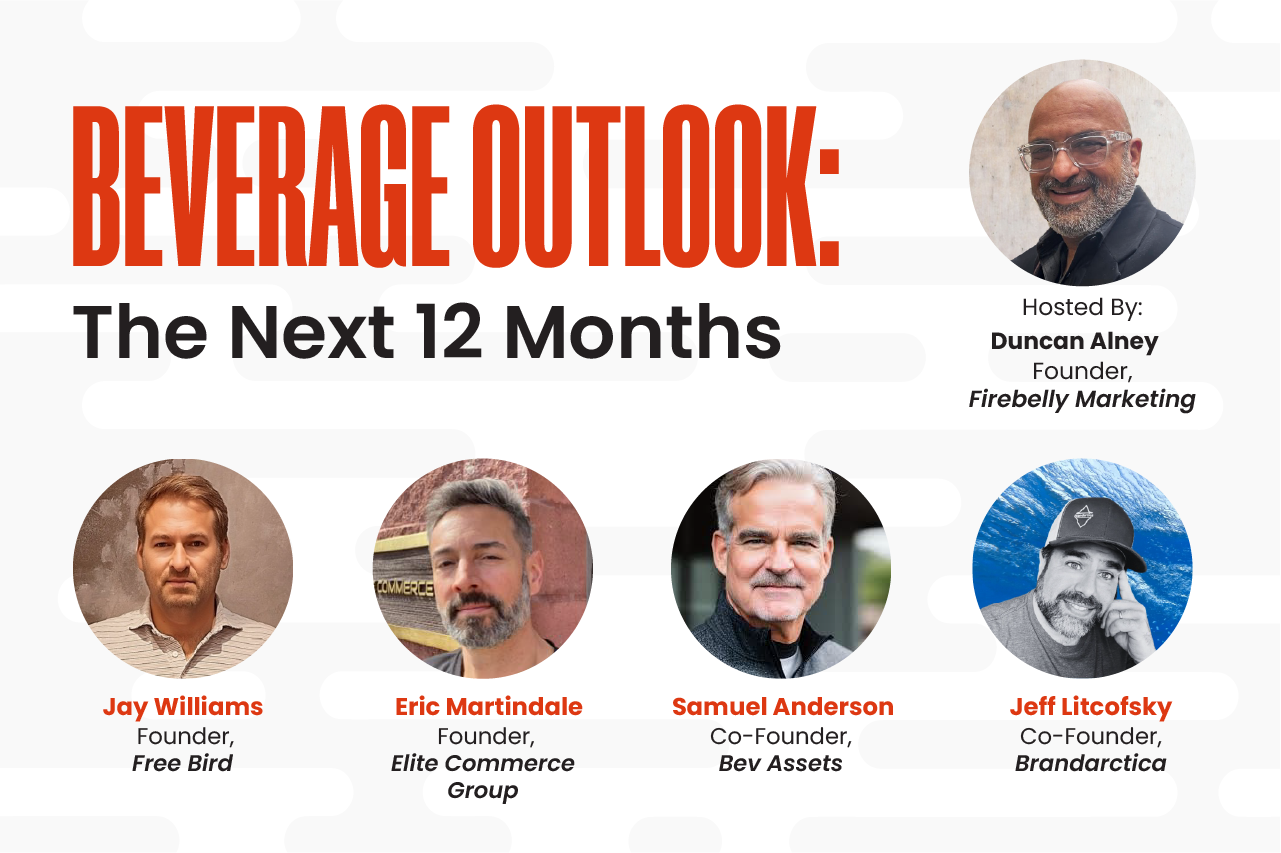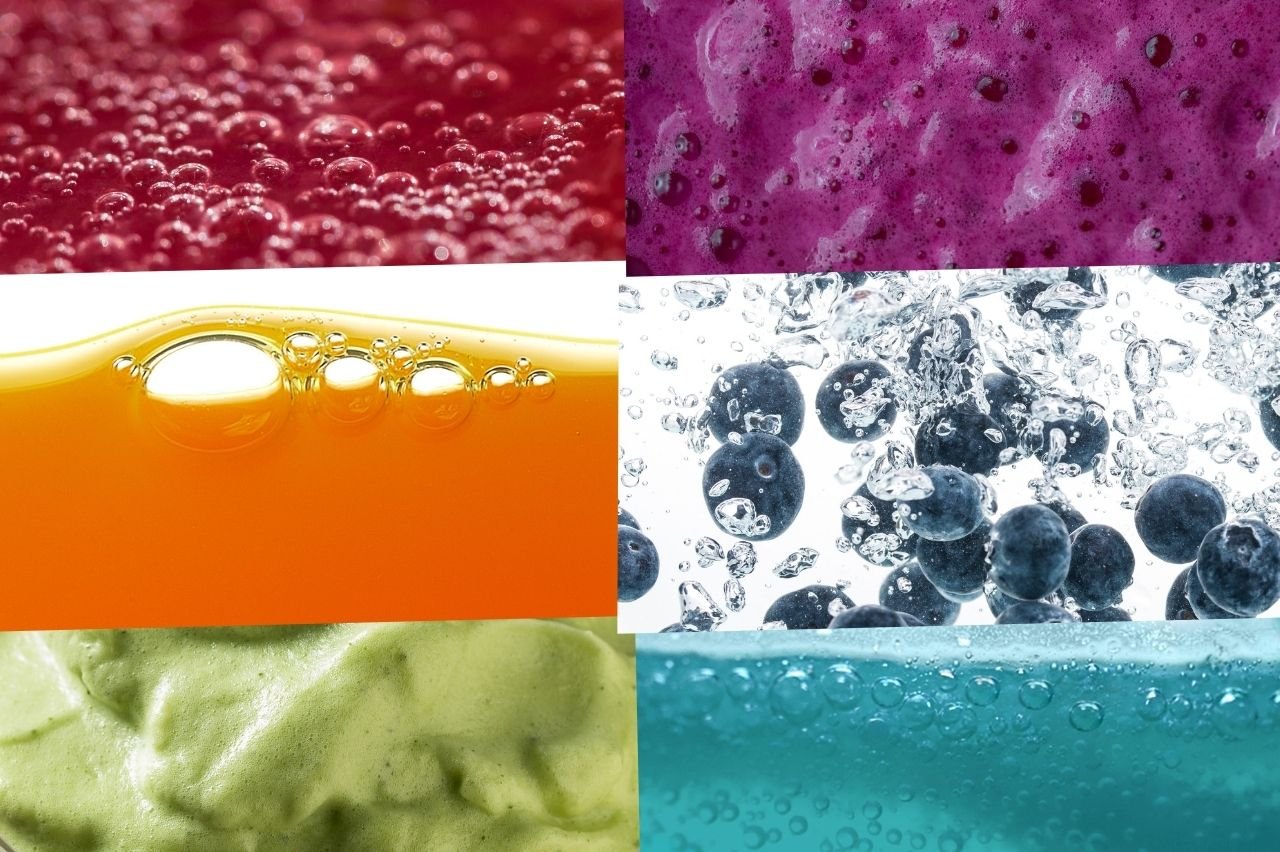Gen Z Beverage Marketing: Health Trends and Social Shifts Are Transforming Tastes

The Shift No One Saw Coming
When was the last time anyone saw a college student proudly cracking open a can of traditional soda? Maybe a Coke, Pepsi or Mountain Dew?
We’ll wait.
Though to be fair, most of the Gen Zers at Firebelly still love their Diet Coke.
The beverage industry is experiencing a seismic shift. Gen Z and millennials are redefining what “refreshment” means. Traditional sodas—once the undisputed kings of the beverage aisle—are losing their fizz with younger consumers who appear to prioritize health, sustainability, and authenticity.
It’s happening everywhere. That friend who used to down Mountain Dew like water is now posting Instagram stories about their Olipop Ridge Rush prebiotic soda obsession. The cousin who collected Coke memorabilia now swears by sparkling water with “just a hint” of flavor. These aren’t isolated incidents – we’re talking about a full-blown revolution in liquid form.
The meteoric rise of alternative sodas tells the story better than any market report could: consumers aren’t abandoning carbonation—they’re demanding that it evolve.
But is it just about being “alternative”… or actually better?
With plant-based sweeteners, clean ingredients, and transparent marketing, these brands are doing more than capturing market share—they’re redefining what success looks like. And investors are noticing.
PepsiCo recently acquired Poppi in a $1.95 billion deal, and Olipop’s valuation is surging as functional beverage brands dominate growth charts. It’s clear: this space is hot—but it’s also getting crowded. With a wave of BFY brands hitting the market, we may already be reaching saturation. Not every brand can be the next Poppi.
The explosion of better-for-you soda brands has created what some are calling a BFY bubble. With so many similar products flooding the shelves—often using the same functional buzzwords and minimalist aesthetic—it’s becoming harder for new entrants to stand out. While demand is high, the category risks oversaturation, where only the most differentiated, authentic, and well-funded brands will survive long term.
Nevertheless, market data consistently shows that health-focused beverage brands don’t just feel good to consume—they’re driving impressive bottom-line growth, with consumers willing to pay premium prices for products that align with their values.
“Is Gen Z actually more health-conscious, or are other factors at play?”
Still, how do we explain 19-year-olds who’ll grab $4.99 cans of sparkling mushroom drinks without blinking—then complain about gas prices?
It all points to Gen Z’s unique value perception. If it aligns with their wellness identity and social values, they’ll pay for it.
Gen Z Beverage Marketing: Understanding a Complex Generation
Born between 1997 and 2012, Gen Z represents the first truly digital-native generation. They’ve grown up with unprecedented access to health information, and it’s seemingly altered their consumption patterns:
- 73% of Gen Z consumers check ingredient lists before making purchases
- 65% actively seek out products with natural ingredients
- 58% are willing to pay more for beverages with functional benefits
- 47% research a brand’s environmental practices before buying
- TikTok, their platform of choice, is flooded with #guthealth, #adaptogens, and #cleanlabel content
But here’s where it gets interesting – is Gen Z actually more health-conscious, or are other factors at play?
Consider this: Gen Z socializes differently than previous generations. They spend more time in digital spaces and less time in physical social settings where traditional sodas were consumption staples.
Everyone’s less likely to consume both alcohol and pop alone.
Studies show that Gen Z attends fewer parties, goes to fewer in-person social events, and spends less time in group settings than previous generations. Could the decline in traditional soda consumption be partly attributed to the decline in social occasions where these beverages were traditionally consumed?
So maybe soda’s decline isn’t just about ingredients—it’s about context.
That said, when Gen Z does make beverage choices, studies show that 41% remain fiercely loyal to brands that align with their values. That’s not just customer retention—it’s a revolution in how beverages must be marketed and positioned.
The New Gen Z Beverage Marketing Playbook
Authenticity Builds Brand Equity and Market Share
Gen Z can spot inauthenticity from miles away. They’ve developed finely-tuned BS detectors. Successful beverage brands are building valuable equity through:
Transparent Communication
- Origin stories that connect with consumers’ values (not fabricated brand myths)
- Honest ingredient information that builds credibility (including admitting when they’re not 100% perfect)
- Environmental impact insights that attract conscious buyers (with real numbers, not vague claims)
- Clear communication about functional benefits (backed by actual science, not pseudo-wellness jargon)
Digital Engagement That Actually Resonates
- Behind-the-scenes content showing real production processes (imperfections and all)
- User-generated content that amplifies authentic experiences (not staged influencer shots)
- Values-driven storytelling that creates emotional connections (addressing real issues, not jumping on trendy causes)
- Platform-specific content that meets Gen Z where they are (understanding the culture of each platform)
One beverage brand recently nailed this by showing their production line shutdown due to a quality issue. Instead of hiding it, they documented the entire troubleshooting process, explaining why they wouldn’t ship products that didn’t meet standards.
“Gen Z doesn’t just want different ingredients; they want different experiences.”
The comments section was filled with Gen Z consumers practically begging to know when products would be back in stock. That’s the power of genuine transparency.
Product Innovation Excellence That Actually Delivers
The most successful brands are innovating in ways that speak directly to Gen Z priorities:
Ingredient Revolution
- Plant-based formulations that appeal to flexitarian lifestyles (without preaching)
- Functional ingredients with scientifically-backed benefits (not pseudo-science)
- Clean label products with recognizable ingredients (that grandmothers would understand)
- Reduced or zero sugar options without artificial substitutes (that don’t taste like chemicals)
Packaging Evolution That Matters
- Sustainable materials that reflect environmental values (with clear explanations about their impact)
- QR codes linking to expanded product information (where curious consumers can go as deep as they want)
- Aesthetic designs worthy of social sharing (because yes, the Instagram factor still matters)
- Clear communication of functional benefits (without making medical claims)
Gen Z doesn’t just want different ingredients; they want different experiences. The entire beverage journey matters… From discovery to disposal.
Many 20-somethings spend considerable time researching how to properly recycle specialized beverage containers rather than just tossing them in the trash. Such a level of commitment to values would have been unthinkable in previous generations.
The Alternative Soda Blueprint: Why Some Brands Are Winning
The success of alternative soda brands offers a masterclass in connecting with younger consumers:
- Transparency as Currency: Successful brands don’t hide behind marketing jargon—they clearly communicate what’s in their products and why those ingredients matter. When one popular brand reformulated to remove caramel color, they didn’t just quietly make the change – they explained the reasoning and brought consumers along for the journey.
- Function Meets Flavor: By delivering familiar soda experiences without the sugar crash, these brands prove that health-conscious doesn’t mean taste-compromised. They’ve successfully recreated the flavor profiles people grew up with, minus the ingredients they’ve learned to avoid.
- Values-Aligned Marketing: Their campaigns focus on sustainability and health education, building community around shared values rather than just product attributes. They speak to consumers as partners in creating a healthier world, not just as potential sales.
- Social-First Engagement: Successful brands meet Gen Z where they are—on TikTok, Instagram, and through influencer partnerships that feel authentic rather than promotional. Their social presence feels like it’s run by humans who actually care, not a corporate marketing department checking boxes.
- Inclusive Health Messaging: Unlike many wellness brands that can feel elitist or preachy, the best alternative sodas focus on making better options accessible to everyone. Their messaging celebrates small, positive changes rather than demanding perfection.
College students often describe alternative sodas as “the soda my body deserves.” Not the cheapest option, not even their favorite taste (though they liked it fine), but the option that aligned with how they wanted to treat themselves.
That’s brand loyalty built on values – not just preference.
The Social Shift: Are Marketers Misreading Gen Z Beverage Choices?
It’s time to challenge assumptions. Is the decline in traditional soda consumption really about health consciousness, or is it about changing social patterns?
Consider these stats:
- Gen Z spends 4-5 hours per day on social media, compared to 2-3 hours for Millennials
- In-person social gatherings among teens have declined by approximately 40% since 2000
- 55% of Gen Z reports feeling more comfortable socializing online than in person
- Traditional soda consumption has historically been highest in social settings like parties, movie theaters, and restaurants
What if marketers are misinterpreting a social shift as a health shift? What if traditional sodas are declining not because Gen Z is more health-conscious, but because they’re simply experiencing fewer social occasions where these drinks were traditionally consumed?
This theory has interesting implications for Gen Z beverage marketing. Perhaps the focus shouldn’t be exclusively on health benefits, but also on creating new consumption occasions and contexts for beverages in increasingly digital social spaces.
Observational research of Gen Z students during rare in-person social gatherings shows traditional sodas still present and consumed, though in smaller quantities than at similar gatherings of previous generations. However, many also bring their own preferred beverages, suggesting both changing habits and a desire for personal choice.
The Hybrid Reality: Health Consciousness Meets Social Transformation
The truth likely lies somewhere in the middle. Gen Z is indeed more informed about health and nutrition than previous generations, but they’re also experiencing fundamentally different social realities that impact consumption patterns.
Effective Gen Z beverage marketing must address both realities:
The Health Consciousness Factor
- Provide transparent information about ingredients and their effects
- Create products with functional benefits that enhance wellbeing
- Emphasize clean, recognizable ingredients
- Focus on how the product makes consumers feel physically
The Social Transformation Factor
- Design products for solo consumption experiences
- Create social-first marketing that integrates into online social spaces
- Develop products that enhance digital social experiences
- Build communities around shared values rather than shared consumption occasions
The brands that understand this duality will be best positioned to capture Gen Z’s beverage dollars. They’ll recognize that health consciousness is real, but it exists within a broader context of social transformation.
Functional Benefits: The New Fizz Factor
While traditional sodas focused primarily on taste and refreshment, today’s successful beverage brands are incorporating functional benefits that Gen Z actively seeks:
Mental Performance
- Natural caffeine sources for sustained energy
- L-theanine for focus without jitters
- Adaptogens for stress management
- Nootropics for cognitive performance
- Mushroom???
Physical Wellness
- Electrolytes for hydration that actually works
- Prebiotics and probiotics for gut health
- Collagen for skin health
- Plant-based proteins for active lifestyles
Emotional Wellbeing
- Herbs for mood enhancement
- Functional mushrooms for stress relief
- CBD-infused options (where legal) for relaxation
- Adaptogens targeted at emotional balance
The beverage that merely tastes good is being replaced by the beverage that makes you feel good – during and after consumption. Market research with Gen Z interns shows overwhelming preference for functional beverages over traditional options, with one participant explaining, “Why would I drink something that’s just empty calories when I could have something that actually does something for me?”
Measuring Success in Gen Z Beverage Marketing
Today’s most successful beverage brands track metrics that go beyond simple sales figures:
Impact Measurements
- Health benefit awareness among target consumers
- Environmental impact reductions that justify premium pricing
- Community engagement that reduces traditional marketing costs
- Educational effectiveness that builds long-term brand value
- Reduced healthcare costs in communities they serve
Brand Trust Indicators
- Transparency achievements that increase market share
- Value-aligned consumer loyalty that reduces acquisition costs
- Social media sentiment analysis that guides product development
- Sustainability leadership that attracts investment
- Employee wellbeing and advocacy measures
One beverage startup recently redesigned their quarterly reporting to focus on these metrics alongside traditional sales numbers. Their investors were initially skeptical, but when they saw how these measures predicted sustainable growth better than traditional metrics, they became true believers.
Gen Z Beverage Marketing Tactics That Actually Work
Specific marketing approaches that are connecting with Gen Z beverage consumers include:
Community Building > Traditional Advertising
- Create spaces (physical and digital) where consumers can connect over shared values
- Foster user communities where products are part of the lifestyle, not the focus
- Support causes the audience cares about with substantial actions, not token gestures
- Invite consumers into product development through genuine co-creation
Education > Hard Selling
- Provide transparent information about ingredients and their benefits
- Create content that helps consumers make better overall health choices
- Explain environmental practices in detail, including areas for improvement
- Share the science behind functional claims in accessible language
Experience > Claims
- Focus on how consumers will feel during and after consuming the product
- Create sampling opportunities that demonstrate functional benefits in real-time
- Design packaging that enhances the consumption experience
- Build digital experiences that extend beyond the physical product
One small functional beverage brand recently crushed established competitors by creating a series of “Feel the Difference” pop-up experiences where consumers could sample products while engaging in activities designed to highlight the functional benefits. The direct experience converted skeptics faster than any marketing claim could.
The Profitable Future of Gen Z Beverage Marketing
The beverage industry is discovering that adapting to Gen Z preferences is good business. Brands embracing health-conscious formulations and transparent marketing aren’t just building trust—they’re building more profitable enterprises.
Market data shows that alternative beverage brands consistently outperform traditional sodas with Gen Z – enjoying higher margins, stronger customer loyalty, and lower acquisition costs through word-of-mouth referrals.
Success in today’s market comes from understanding both the health consciousness and the social transformation affecting Gen Z. Companies embracing transparent practices and clean ingredients aren’t just doing what’s trendy—they’re positioning themselves for premium pricing, stronger customer relationships, and sustainable competitive advantages.
Change is challenging, especially for established brands with decades of momentum behind existing products. But the writing is on the wall (and in the sales data). Traditional soda consumption has been declining for 16 consecutive years, while functional beverages grow at double-digit rates annually.
The numbers tell the story: Gen Z-focused marketing delivers higher margins, stronger growth, and more valuable customer relationships. As Gen Z and millennials increasingly dominate consumer spending, brands committed to transparency, health, and sustainability are capturing the lion’s share of beverage profits while building a better future for everyone.
Industry experts predict that within a decade, what we currently call “alternative” beverages will be mainstream, and traditional sodas will occupy a much smaller market share. The brands that recognize and embrace the complexity of Gen Z’s preferences now will thrive. Those that resist will find themselves increasingly irrelevant to the most important consumer segments.
This analysis (courtesy of us at Firebelly) serves as a guide to profitable, purposeful growth in the evolving beverage landscape. The future isn’t just coming – it’s already here, and it’s not just about health consciousness, it’s about meeting a generation where they actually live.


